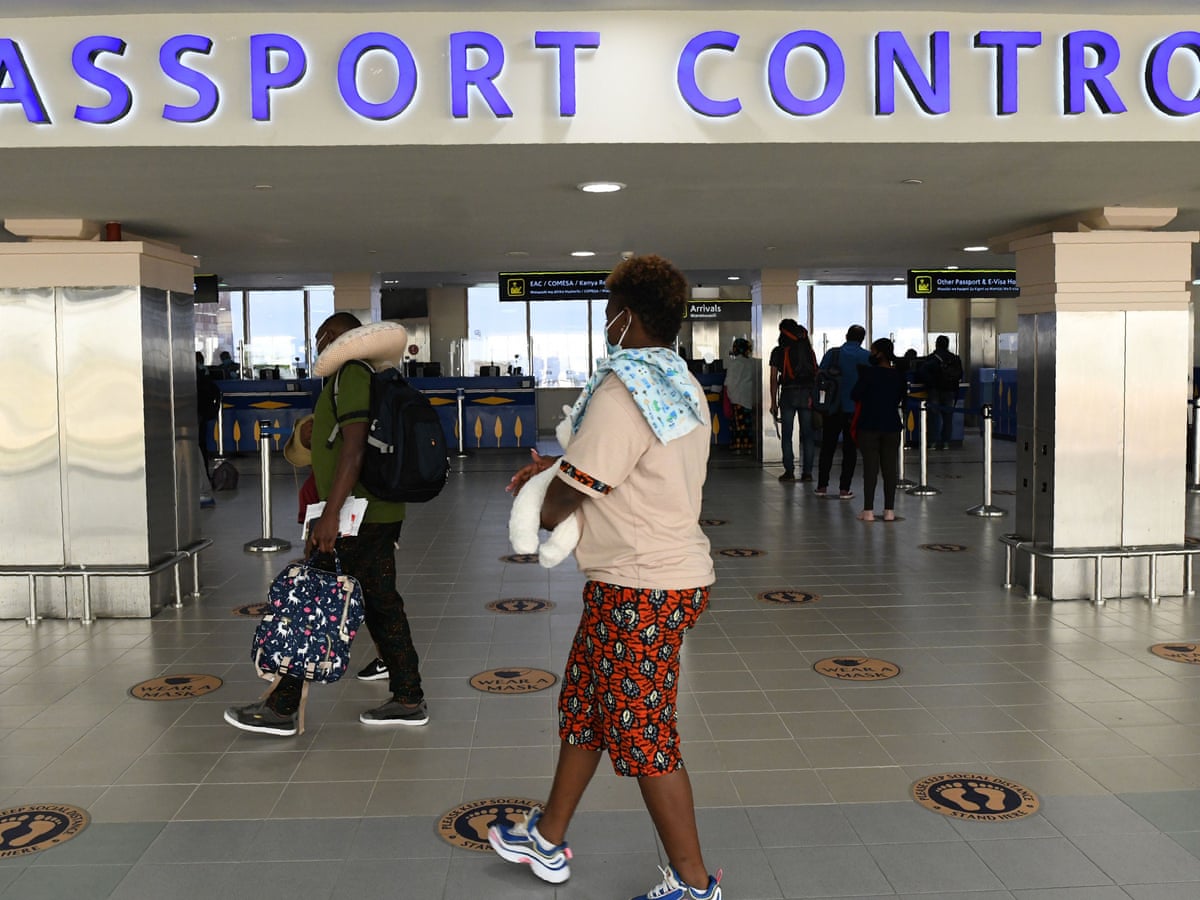
NHS Worker Stuck In Kenya As Officials At Nairobi Airport Rejects Home Office Documents
An NHS worker has been left stranded in Kenya because she has been told that new EU settled status documents issued to her by the Home Office are not valid for travel.
Doreen Kathambi, 36, lives in Glasgow with her fiance, Iain Dunsmore. She works as a dietetic assistant at the Royal Alexandra hospital in Paisley.
She had to travel to Kenya last month for her father’s funeral and informed her employers she would be back in the UK by Monday 18 January.
She obtained her EUSS documents from the Home Office last month to enable her to attend the funeral.
Although she applied for these documents in July last year, she did not get a biometric residence permit appointment until October. Following the death of her father her lawyer had to intervene with the Home Office to expedite the issuing of her EUSS confirmation.
The letter from the Home Office granting her EUSS, seen by the Guardian, confirms that she can prove her settled status by logging into her online digital identity information, which includes her photo and other identifying details.
The case raises concerns about the efficacy of EUSS digital documents issued by the Home Office after officials demanded additional proof from Kathambi.
She had no problems travelling from the UK to Kenya but when she arrived at the airport in Nairobi on Friday hoping to board a Qatar Airways flight back home she was denied permission to board the plane by airline staff and immigration officials at the airport.
“I presented my letter from the Home Office confirming my EU settled status, which said I could share my immigration status online but they said that the advice given by the Home Office to prove my status online is not enough, I need a visa stamped on my passport,” she said.
Although she logged into her digital identity documents, which included a photo, and showed them to officials they rejected this as proof of her status and said they would have to contact Home Office officials in London.
She showed a screenshot of the UK government website page titled “View and prove your immigration status”, explaining how to access the online identity information but was still denied permission to board the 5.10pm flight she and her fiance were booked on to.
Kathambi is distressed by her experience and concerned that her delay in returning to the UK could put her job at risk.
“I’m so worried about my job,” she said. “I asked the airline officials if they could at least give me a document to confirm they had denied me boarding of the plane so that I could show that to my employer but they refused to do so.”
The Home Office issues biometric cards to people granted EUSS. Hers had not arrived by the time she travelled to Kenya but she was told her online digital ID would be sufficient proof for travel.
She said her experience at the airport was traumatic.
“They were asking me all sorts of personal questions about things like whether I was married. I kept showing them proof that I could travel. I even showed them my NHS work badge which I carry with me. But everything was refused. The whole thing was so dehumanizing. I almost lost my mind in the airport.”
Chai Patel of the Joint Council for the Welfare of Immigrants said: “We’ve warned time and again that digital only status will lead to discrimination – in particular against people of colour. Now we are seeing confirmation of this. [The]Home Office must immediately enable Doreen to return to the UK – as is her right as an EU settled status holder and give Europeans the physical proof they so desperately need to demonstrate their rights. Without this we will sadly see more discrimination at borders, in employment and in housing.”
A Home Office spokesperson said: “We are in the process of making contact with Ms Kathambi to work with her on the best options to help her to return to the UK.
“A non-EEA national with settled status must continue to present their passport and biometric residence card to travel to the UK.”

